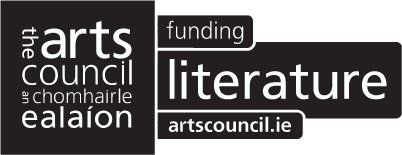Fugitives! (30 page)
Authors: Aubrey Flegg
The MacSweeneys went over to the English side shortly after the Battle of Kinsale. They could easily have betrayed O'Neill and his ship to the English, but did not. They did, however, refuse to provide provisions for the ship, which when it sailed, it had a hundred people on board. MacSweeney's son really did lead an attack on a party from the ship as they tried to fill their water barrels at a stream. There are also reports of O'Neill's followers doing some cattle stealing in order to get meat for the voyage.
Other historical characters are mere shadows. All we know of young Con's foster family is that they were semi-nomadic cattle herders, but when I found that the name O'Brolchain belonged to cattle herdsmen from County Tyrone, I felt I must use it.
Garret Moore, an English member of the Irish Privy Council, was also a personal friend of Hugh O'Neill. He lived at Mellifont, an abbey and castle which you can visit today. He is one of the nice men of Irish history. On several occasions he tried to act as peacemaker between O'Neill and the English. O'Neill was making a tearful farewell to his old friend when I have his son, John, arriving at the de Cashel castle to ask Sir Malachy for help in finding Con.
While making-up incidents for this book I have asked myself continually: âCould this really have happened?' If the answer was âno' then I had to leave it out. One exception is the gathering of the clans that Sinéad and Hugh remember when looking down from the battlements. There must, undoubtedly, have been such a gathering, before they set out for Kinsale, but it is unlikely to have happened so close to the Pale. Also, as the battle took place in
December (1601), it would not have been such a splendid affair. However, I allowed it, as it was an opportunity to describe the soldiers of the time and also to allow Hugh to grieve over the huge number of men and friends who died in the battle.
Aubrey Flegg
For further information visit
The O'Brien Press website: www.obrien.ie

Aubrey Flegg was born in Dublin and spent his early childhood on a farm in County Sligo. He began to write for children after a career as a geologist with the Geological Survey of Ireland. His first book,
Katie’s War
, is about the Civil War period in Ireland. His second,
The Cinnamon Tree
, is about a young African girl who steps on a landmine.
Wings Over Delft
is the first book of
THE LOUISE TRILOGY
. It is set in seventeenth-century Holland and tells the story of a young Dutch girl’s life and love while having her portrait painted (
Wings Over Delft,
was Bisto Book of the Year 2003/4, and winner of the Reading Association of Ireland award 2005). In
The Rainbow Bridge
, second in the trilogy, the picture falls into the hands of a young French hussar at the time of the French Revolution and tells how the girl in the picture influences his life. The third book of the trilogy,
In the Claws of the Eagle
, is the story of a violin prodigy, Izaac Abrahams, growing up in Austria with the picture (and with Louise) in the years leading up to and into the Second World War, to the period of the holocaust.
This eBook edition first published 2013 by The O’Brien Press Ltd,
12 Terenure Road East, Rathgar, Dublin 6, Ireland
Tel: +353 1 4923333; Fax: +353 1 4922777
E-mail: [email protected]
Website: www.obrien.ie
First published 2010
eBook ISBN: 978–1–84717–381–2
Copyright for text © Aubrey Flegg 2010
Copyright for typesetting, layout, editing, design © The O’Brien Press Ltd
UNAUTHORISED COPYING IS ILLEGAL
All rights reserved. No part of this publication may be reproduced or utilised in any form or my any means, including electronic, digital, mechanical, visual or audio, or mounted on any network servers, without permission in writing from the publisher.
Carrying out any unauthorised act in relation to a copyright work may result in both a civil claim for damages and criminal prosecution.
For permission to copy any part of this publication contact
The O’Brien Press Ltd at [email protected].
British Library Cataloguing-in-Publication Data
A catalogue record for this title is available from the British Library
Editing, typesetting, layout and design: The O’Brien Press Ltd
The O’Brien Press receives assistance from
